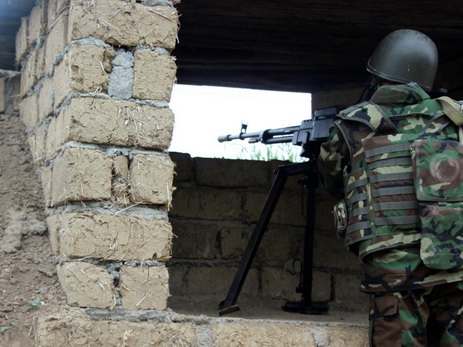Reuters: People die, shooting rages at night, amid spluttering Nagorno-Karabakh truce

A ceasefire between Azerbaijan and its breakaway Nagorno-Karabakh region may have stopped a short conflict becoming an all-out war a month ago, but gunfire and shelling still echo nightly, residents say, and people are still being killed.
The ex-Soviet states of Azerbaijan and Armenia fought a war over the territory in the early 1990s with thousands killed on both sides and hundreds of thousands displaced.
The latest outbreak of violence was brief - intense fighting lasted only four days - and dozens rather than thousands were killed.
But locals say the ceasefire agreement, reached on April 5, is violated almost daily by shelling and fatalities.
"We are very afraid as shooting from rocket launchers and shelling has not stopped since the ceasefire," Maral Abdullayeva, an English language teacher in the village of Sarijaly in Azerbaijan, told Reuters.
"Our school was destroyed on April 4. It has been partly restored since then, but the kids are still afraid to go out," said Abdullayeva, a slim woman in her mid-40s, pointing to cracks in the walls of her small house.
At least eight soldiers, from both sides, have been killed in exchanges of fire since the ceasefire was declared, according to statements from Azerbaijan and the separatists. Locals say gunfire is particularly common at night.
The situation is a worry for European countries who fear another flare-up could deepen instability in the South Caucasus, a region that serves as a corridor for pipelines taking oil and gas to world markets.
Sarijaly is a small village in Agdam region, about six km (3.73 miles) from the frontline, which divides Azeri forces and Armenian-backed separatists from Nagorno-Karabakh, which is populated mainly by ethnic Armenians who reject Azerbaijan's rule.
Azerbaijan and officials from Nagorno-Karabakh blame each other for truce violations.
Sarijaly and some other villages in Agdam are controlled by the Azeris.
Residents in the neighbouring village of Yevogly are equally derisory about the effectiveness of the ceasefire.
"Our life has turned into hell. We hear shooting every night. What kind of a ceasefire are you talking about?" complained Agul Huseinova, 56.
Her house and small farm were destroyed and her cattle killed, forcing her to move in with relatives.
"All the electricity lines were damaged. There is no electricity, no gas and we can't even go and work on our land plots," she said.
Residents of villages from the other side of the frontline - on the separatist side - make the same complaints.
Grim, almost daily, reports from both Azerbaijan and Nagorno-Karabkh, about casualties among the military reinforce local fears that a wider conflict is just round the corner.
(Writing by Margarita Antidze; Editing by Andrew Osborn and Richard Balmforth)














